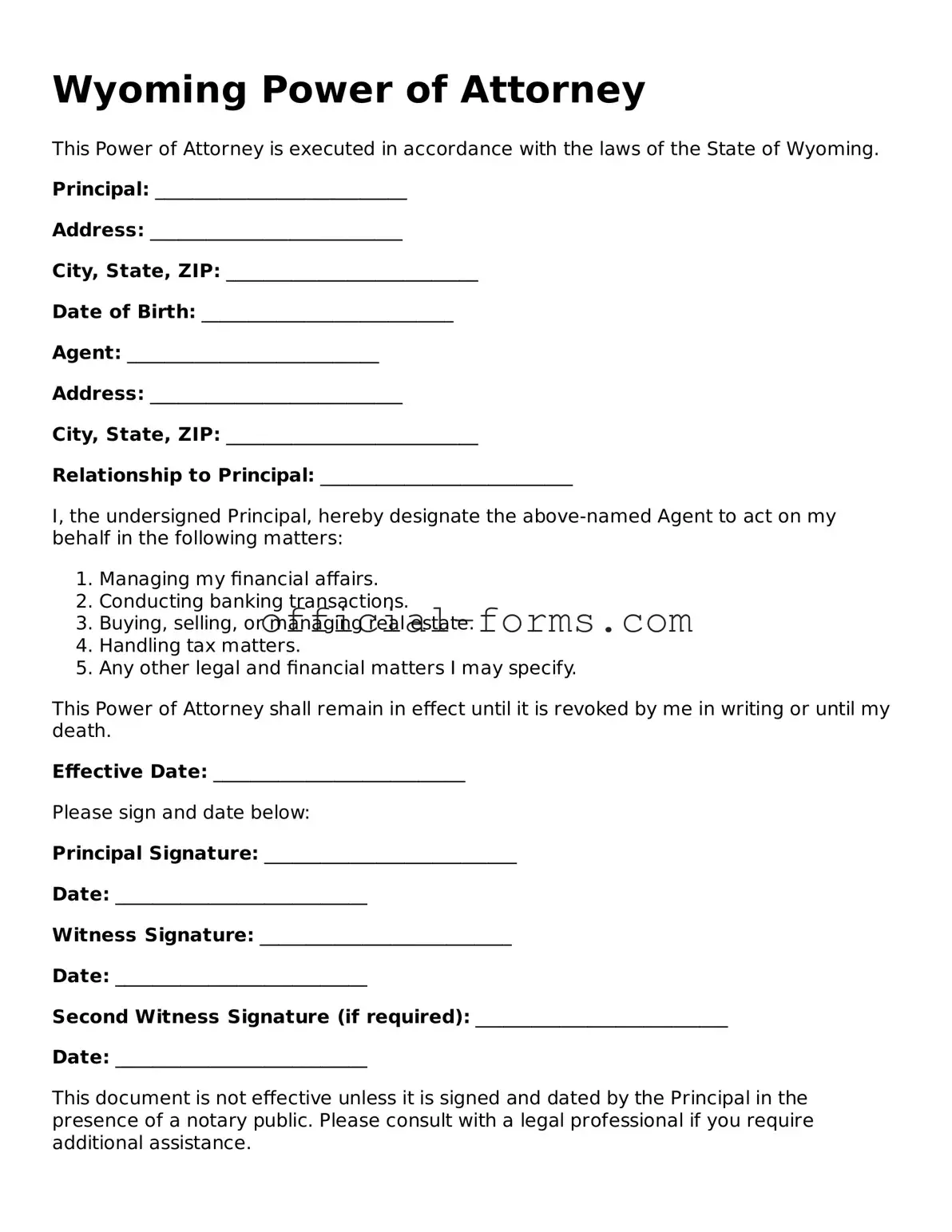Filling out a Power of Attorney (POA) form in Wyoming is a critical task that should not be taken lightly. However, many individuals make common mistakes that can lead to complications down the road. Understanding these pitfalls can help ensure that your wishes are honored and that your designated agent can act on your behalf without any issues.
One of the most frequent mistakes is not specifying the powers granted. A general Power of Attorney might seem convenient, but it can lead to confusion. It’s essential to clearly outline what your agent can and cannot do. This specificity helps prevent misunderstandings and potential disputes later on.
Another common error is failing to sign and date the document. A Power of Attorney is not valid unless it is signed by the principal (the person granting the authority). Without your signature and the date, the document holds no legal weight. Always double-check that you have completed this critical step.
Many individuals also overlook the requirement for witnesses or notarization. In Wyoming, certain types of POA forms must be signed in the presence of a notary public or witnesses. Neglecting this requirement can invalidate your document, leaving your agent without the authority to act on your behalf.
Another mistake is not discussing the decision with the chosen agent before filling out the form. It’s vital to ensure that your agent is willing to take on this responsibility. A candid conversation about your expectations can help prevent future conflicts and ensure that your agent understands your wishes.
Some people also forget to update their Power of Attorney when their circumstances change. Life events such as marriage, divorce, or the death of a designated agent can impact your POA. Regularly reviewing and updating the document ensures it remains relevant and effective.
Moreover, failing to store the document securely is a mistake that can lead to unnecessary complications. Keep the original document in a safe place, and provide copies to your agent and any relevant institutions. This ensures that your agent can access it when needed.
Finally, many individuals do not seek legal advice when filling out the form. While it may seem straightforward, the implications of a Power of Attorney can be significant. Consulting with a legal professional can provide peace of mind and ensure that your document complies with all applicable laws.
By being aware of these common mistakes, you can take proactive steps to ensure your Power of Attorney is completed correctly. This important document can provide you with peace of mind, knowing that your affairs will be handled according to your wishes.

